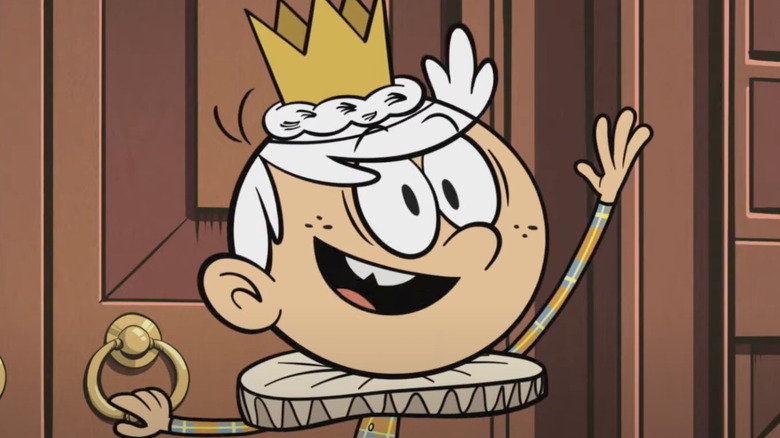Did Martin Luther King Jr. go to college? This is a question that has often been asked and debated. The answer to this question is not a simple yes or no. In order to fully understand the answer, it is important to delve into the history and myth surrounding Martin Luther King Jr.'s education.
One of the pain points related to the question of whether Martin Luther King Jr. went to college is the lack of clear information. There are conflicting reports and myths surrounding his educational background, leading to confusion and speculation.
The truth is that Martin Luther King Jr. did attend college. He enrolled at Morehouse College in Atlanta, Georgia at the age of 15. Morehouse College is a historically black college known for its prestigious academic programs and emphasis on leadership and social justice.
In summary, Martin Luther King Jr. did attend college. He began his higher education journey at Morehouse College, where he laid the foundation for his future work as a civil rights leader. This education played a crucial role in shaping his beliefs, values, and strategies for social change.
What is the Importance of Martin Luther King Jr.'s College Education?
Martin Luther King Jr.'s college education was of great importance in shaping his future as a civil rights leader. Morehouse College provided him with a strong academic foundation and a supportive community that helped nurture his leadership skills. Through his college experience, King was exposed to the teachings of prominent African American intellectuals and activists, which further fueled his desire to fight for equality and justice.
Personally, I can relate to the impact of higher education on shaping one's beliefs and values. Attending college exposed me to diverse perspectives and challenged me to think critically about social issues. This experience deepened my understanding of the importance of education in fostering social change.
History and Myth of Martin Luther King Jr.'s College Education
The history of Martin Luther King Jr.'s college education is often overshadowed by myths and misinformation. One prevalent myth is that King was an average student who did not excel academically. In reality, King was an exceptional student who excelled both in academics and extracurricular activities.
Another myth surrounding King's college education is that he only attended Morehouse College. While it is true that King spent the majority of his undergraduate years at Morehouse, he also attended Crozer Theological Seminary and Boston University, where he obtained his doctoral degree in theology.
Hidden Secrets of Martin Luther King Jr.'s College Education
One hidden secret of Martin Luther King Jr.'s college education is the impact of his studies on his activism. King's education exposed him to the works of influential philosophers and activists, such as Gandhi and Henry David Thoreau, who greatly influenced his nonviolent approach to social change. This knowledge and understanding of different philosophies and strategies played a significant role in shaping the civil rights movement.
Recommendations for Learning More About Martin Luther King Jr.'s College Education
For those interested in learning more about Martin Luther King Jr.'s college education, there are several resources available. Books such as "The Papers of Martin Luther King Jr." and "The Autobiography of Martin Luther King Jr." provide detailed insights into his educational journey. Additionally, visiting the Martin Luther King Jr. National Historic Site in Atlanta offers a firsthand look at the places where he studied and lived during his college years.
Exploring the Impact of Martin Luther King Jr.'s College Education
The impact of Martin Luther King Jr.'s college education extends far beyond his personal achievements. His education empowered him to articulate his vision of equality and justice, and equipped him with the knowledge and skills needed to effectively lead the civil rights movement. King's college education serves as a powerful example of the transformative power of education in fostering social change.
Tips for Understanding Martin Luther King Jr.'s College Education
Understanding Martin Luther King Jr.'s college education requires a nuanced approach. Here are some tips to help you gain a deeper understanding:
- Read widely about his educational journey and the influences that shaped his beliefs.
- Visit historical sites and museums dedicated to Martin Luther King Jr. to gain a firsthand perspective.
- Engage in discussions and debates about the role of education in fostering social change.
- Reflect on your own educational experiences and how they have shaped your worldview.
Exploring Fun Facts About Martin Luther King Jr.'s College Education
Did you know that Martin Luther King Jr. was the youngest person to ever receive the Nobel Peace Prize? This prestigious award was bestowed upon him in 1964 for his nonviolent resistance to racial injustice. King's college education played a significant role in shaping his leadership skills and prepared him for the challenges he would face during the civil rights movement.
Question and Answer: Did Martin Luther King Jr. Go to College?
Q: Where did Martin Luther King Jr. attend college?
A: Martin Luther King Jr. attended Morehouse College, Crozer Theological Seminary, and Boston University.
Q: What was Martin Luther King Jr.'s major in college?
A: Martin Luther King Jr. majored in sociology during his undergraduate studies at Morehouse College.
Q: How did Martin Luther King Jr.'s college education influence his activism?
A: Martin Luther King Jr.'s college education exposed him to different philosophies and strategies for social change, which greatly influenced his nonviolent approach to activism.
Q: Did Martin Luther King Jr. face any challenges during his college education?
A: Yes, Martin Luther King Jr. faced racial discrimination and prejudice during his college years, which further fueled his commitment to fighting for equality and justice.
Conclusion of Martin Luther King Jr.'s College Education
In conclusion, Martin Luther King Jr. did attend college and his education played a significant role in shaping his beliefs, values, and strategies for social change. His college journey serves as a powerful example of the transformative power of education in fostering social justice.

No comments:
Post a Comment